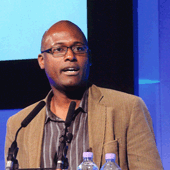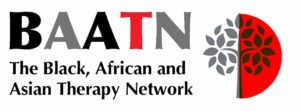
On the 8th November 2012 an article entitled “why strong black people do go to counselling” was published in the Voice Newspaper. Read it here.
Text version below:
WHY STONG BLACK PEOPLE DO GO TO COUNSELLING
“I don’t feel like chatting my business to anyone” is one of the reasons African-Caribbeans give for not going to a therapist when facing life’s tough challenges. Eugene Ellis says this has to change.
A young black man was feeling low. He didn’t think he was depressed but his life was not as he wanted it to be. His current relationship was heading for the rails just like they always did. In order not to face the disappointment in people’s eyes he acted as if he did not care or that he wanted the relationship to end anyway. When counselling was suggested to him he said, “Me, go counselling? You must be mad!” Counselling did not fit his image of the strong black person that his parents kept on saying he had to be. After hearing about a friend attending counselling, who in his eyes he had always seen as strong, he thought more about going for himself. Eventually he did go to counselling and realised it was of real benefit.
It is a common perception that black people don’t use counselling services. Some common statements made by black people. “I don’t feel like ‘chatting my business’ to any and anyone”, meaning that black people suffer in silence or “I don’t want to be labelled as crazy”. There is also a deep seated belief that going to see a counsellor, who in most cases is Caucasian, will mean that the counsellor will not be able to empathise or understand black people’s experiences.
LABELLED
Many of us know of a family member or friend who has been admitted to a mental health unit who may have experienced first hand the restrictive end of the mental health system; or have been referred to a psychiatrist, only to be labelled and given medication, neither of which addresses the person’s real problem. Counselling or psychotherapy can prevent the stresses of life getting out of hand and therefore prevent the need for psychiatric intervention. Black people, because of the need to be seen as strong and their fear of the system, tend to wait until they are past breaking point and beyond the point where talking things through can prevent them from ending up in the extreme end of the mental health system.
According to the Care Quality Commission’s ‘Count Me In’ census of mental health hospital inpatients carried out in 2010, almost 22% of mental health inpatients were from BME groups. But these ethnic groups make up only 9% of the UK population.
There is an organisation that seeks to reflect the many who are committed, are passionate and actively engaged in addressing the psychological needs of Black and Asian people in the UK. The Black and Asian therapist Network (BAATN) was founded in 2004 by British Caribbean psychotherapist Eugene Ellis. The network was born out of the tension between his own experience of counselling which had made a significant impact on his own life and the numerous studies showing black peoples overwhelming negative experience of the mental health system.
BAATN is a network of over 600 Black and Asian therapists resident in the UK that aims to inspire and support each other to develop the services they offer for their Black and Asian clients as well as informing the counselling and psychotherapy profession as a whole on ‘Black issues’, a term used by Dr Mavinga-McKenzie to counter what might be seen in the general counselling field as “white issues”.
THERAPISTS
On the BAATN website there is an online directory of Black and Asian therapists across the UK with members having practices all over the UK including London, Manchester, Birmingham, Newcastle and Yorkshire.
One client had this to say about the therapy she had: I am a much better and richer individual for it and even my children have noticed the change. I’m so much calmer and have been able to be more philosophical in my outlook on life. When I used to miss sessions due to work or holidays, they would say to me,’ mum you haven’t had your sessions have you?”
There have been a number of successful projects in the network. These include trainings for both black and white therapists around ‘black issues’ in mainstream psychotherapy and counselling training institutions. There is a collaboration with Project 20:20 and the UK Council for Psychotherapy to put on a series of events called ‘Black Men On the Couch’, the last of which featured Ashley Walters (Hustle, Top Boy, Inside Men) and Stuart Lawrence (brother of Stephen Lawrence) revealing some of the struggles and obstacles they had to overcome which provided an insight into just how valuable it is to talk. Also BAATN has run a very successful mentoring programme for Black and Asian counsellors and psychotherapists.
More recently BAATN has produced free podcasts, which are available on their website. These podcasts are for the general public as well as for mental health professionals who are interested in the internal psychological world from a Black and Asian perspective.
The network is the place for the Black and Asian public to connect with ideas and people that support their psychological health and mental fitness.
